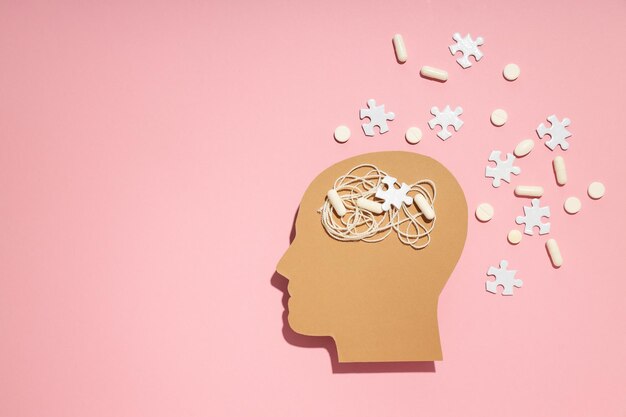Ask Ayurvedic doctor a question and get a consultation online on the problem of your concern in a free or paid mode. More than 2,000 experienced doctors work and wait for your questions on our site and help users to solve their health problems every day.
ADHD Treatment in Ayurveda – Natural Ayurvedic Approaches for Managing ADHD Symptoms

Introduction to ADHD Treatment in Ayurveda
Attention Deficit Hyperactivity Disorder (ADHD) is a neurodevelopmental disorder characterized by symptoms such as inattention, hyperactivity, and impulsivity. While conventional treatments like medication and behavioral therapy are commonly used, Ayurveda offers a holistic approach to managing ADHD by addressing the root causes of the condition through natural remedies, lifestyle changes, and a balanced diet. Ayurvedic treatments focus on restoring harmony to the body’s Vata dosha, which is believed to be a primary factor in ADHD, and improving mental clarity, focus, and emotional stability.
Don't wait or self medicate. Start chat with Doctor NOW
Historical Roots & Ayurvedic Significance
Ayurveda, the ancient system of medicine originating in India, takes a holistic approach to mental health. In Ayurvedic philosophy, mental health disorders like ADHD are often linked to imbalances in the doshas, especially Vata dosha, which governs the nervous system, movement, and mental activity. According to Ayurvedic texts, disorders such as ADHD result from the aggravation of Vata, leading to scattered thoughts, impulsive behaviors, and hyperactivity. Ayurvedic treatments aim to restore balance, calm the mind, and improve focus through a combination of herbal remedies, therapies, and lifestyle modifications.
Key Ayurvedic Treatments for ADHD
1. Herbal Remedies
Several herbs are recommended in Ayurveda for managing ADHD symptoms. These herbs have calming, grounding, and focus-enhancing properties:
- Brahmi (Bacopa monnieri): Known for enhancing memory, concentration, and cognitive function, Brahmi is one of the most popular herbs used in Ayurvedic treatments for ADHD. It helps calm the mind, reduces mental fatigue, and enhances focus.
- Ashwagandha (Withania somnifera): This adaptogen helps reduce stress and anxiety, stabilizing the mind and emotions. It also supports overall brain health, helping with memory retention and concentration.
- Shankhapushpi (Convolvulus pluricaulis): A powerful herb for improving mental clarity, Shankhapushpi is known to calm the nervous system, promote healthy brain function, and reduce symptoms of hyperactivity.
- Guduchi (Tinospora cordifolia): Known for its immune-boosting and detoxifying properties, Guduchi also helps balance the mind, reduce anxiety, and support mental clarity.
- Vacha (Acorus calamus): This herb is beneficial for enhancing cognitive function, improving focus, and calming the overactive mind.
2. Panchakarma Therapy
Panchakarma is a key Ayurvedic detoxification process that can be particularly beneficial for ADHD treatment. This therapeutic cleanse helps remove toxins from the body, calm the nervous system, and restore balance to the doshas. Certain Panchakarma therapies that may be used for ADHD include:
- Shirodhara: In this therapy, warm herbal oil is gently poured over the forehead, specifically targeting the third eye (the center of mental clarity). Shirodhara is known for its calming effects on the mind, improving focus, and relieving mental stress.
- Abhyanga: An Ayurvedic oil massage that helps calm the nervous system and balance Vata. The soothing touch and the use of medicinal oils help reduce anxiety, improve mental clarity, and promote relaxation.
- Nasya Therapy: The administration of herbal oils through the nasal passages, which is believed to clear the mind and improve focus by balancing the Vata dosha.
3. Lifestyle Modifications
In Ayurveda, lifestyle modifications play a crucial role in managing ADHD. A well-rounded routine can help address the root causes of ADHD symptoms:
- Dietary Adjustments: Ayurvedic diets are designed to pacify Vata dosha and promote mental clarity. Focus on foods that are grounding, warm, and nourishing, such as whole grains, warm soups, root vegetables, and ghee. Avoid excessive caffeine, sugar, and processed foods.
- Regular Sleep Schedule: Establishing a regular sleep pattern is vital to reduce Vata imbalance. Ensure 7-8 hours of sleep every night to rejuvenate the nervous system and restore mental clarity.
- Yoga and Meditation: Regular practice of yoga and meditation helps calm the mind, reduce stress, and improve concentration. Specific poses like Sukhasana (Easy Pose), Padmasana (Lotus Pose), and Pranayama (breathing exercises) are especially beneficial for grounding the mind and improving focus.
4. Ayurvedic Detoxification and Rejuvenation
Detoxification therapies such as Virechana (purgation) and Basti (medicated enemas) can also be beneficial for managing ADHD. These therapies are designed to eliminate toxins from the body, improving overall mental and physical health. Rejuvenating treatments using Rasayana herbs like Amalaki (Indian Gooseberry) and Guggulu (Commiphora wightii) help restore balance to the body, improve cognitive function, and support emotional stability.
How Ayurvedic Treatments Work for ADHD
Ayurvedic treatments for ADHD work by addressing the underlying imbalances in the body, particularly Vata dosha. The calming and grounding herbs, therapies, and lifestyle adjustments help balance the mind and nervous system. By improving digestion and detoxification, Ayurveda also ensures that the body and mind are functioning optimally, which in turn helps alleviate ADHD symptoms like impulsivity, inattention, and hyperactivity.
Choosing the Right Ayurvedic Remedies & Guidance
When seeking Ayurvedic treatments for ADHD, it is important to:
- Consult an Ayurvedic Practitioner: Personalized advice is crucial to ensure the remedies and treatments are suited to your individual needs and constitution.
- Choose Quality Products: Always opt for organic, high-quality herbs and oils to maximize the safety and efficacy of the treatment.
- Follow a Consistent Routine: For optimal results, it is essential to follow the recommended treatments and lifestyle changes consistently.
Recommended Dosage & How to Use Ayurvedic Remedies for ADHD
The dosage of Ayurvedic herbs and treatments for ADHD varies depending on individual health conditions and body constitution. However, general guidelines include:
- Herbal Remedies: Herbs like Brahmi, Ashwagandha, and Shankhapushpi can be consumed in the form of capsules, powders, or teas. Typical dosages range from 300-500 mg per day, but always consult with an Ayurvedic practitioner for tailored guidance.
- Panchakarma Therapy: Panchakarma therapies should be done under the supervision of a qualified Ayurvedic practitioner, who will determine the appropriate therapies and frequency based on the individual’s condition.
- Diet and Lifestyle: Make dietary adjustments and adopt regular sleep, yoga, and meditation practices as part of your daily routine for long-term benefits.
Potential Side Effects & Precautions
While Ayurvedic treatments are generally safe, it is important to consider the following:
- Herbal Sensitivity: Some individuals may experience mild digestive upset or allergic reactions to certain herbs. Discontinue use and consult a practitioner if any adverse reactions occur.
- Pregnancy & Nursing: Pregnant or nursing women should consult with an Ayurvedic professional before starting any herbal treatments.
- Individual Dosage: Always follow the recommended dosage for herbs and treatments to avoid overuse or potential side effects.
Frequently Asked Questions for ADHD Treatment in Ayurveda
How can Ayurveda help in managing ADHD symptoms?
Ayurveda helps manage ADHD by restoring balance to the Vata dosha, improving mental clarity, and reducing impulsivity and hyperactivity through natural herbs, lifestyle changes, and therapies.
What are the best Ayurvedic herbs for ADHD?
Some of the most effective herbs for ADHD include Brahmi, Ashwagandha, Shankhapushpi, Guduchi, and Vacha. These herbs help improve concentration, reduce anxiety, and calm the mind.
How does Panchakarma therapy help with ADHD?
Panchakarma therapy helps detoxify the body, calm the nervous system, and restore balance to the doshas. Specific therapies like Shirodhara and Abhyanga are particularly beneficial for ADHD by improving focus and reducing stress.
Can Ayurveda be used alongside conventional ADHD treatments?
Yes, Ayurvedic treatments can complement conventional ADHD treatments. However, it is essential to consult with both your healthcare provider and an Ayurvedic practitioner to ensure the treatments do not interfere with each other.
How long does it take to see results from Ayurvedic ADHD treatments?
The time to see results can vary depending on the individual’s response to treatment. Some individuals may notice improvements in concentration and emotional balance within a few weeks, while others may take several months for significant changes.
Are Ayurvedic remedies safe for children with ADHD?
Ayurvedic remedies can be safe for children with ADHD when prescribed by a qualified Ayurvedic practitioner. It is crucial to tailor treatments to the child's constitution and ensure that the remedies are appropriate for their age.
Where can I find Ayurvedic treatments for ADHD?
Authentic Ayurvedic treatments can be found at Ayurvedic pharmacies, through certified practitioners, or reputable online stores specializing in Ayurvedic products.
Conclusion & Expert Insights
Ayurveda offers a comprehensive and holistic approach to managing ADHD by addressing the root causes of the condition and restoring balance to the mind and body. By combining herbal remedies, lifestyle changes, and therapies like Panchakarma, individuals with ADHD can experience improved focus, emotional stability, and overall well-being. Consulting with an Ayurvedic practitioner and following a personalized treatment plan can help individuals find relief and manage their ADHD symptoms naturally.
References & Further Reading
- Lad, V. (2002). Ayurveda: The Science of Self-Healing.
- Sharma, P.V. (1995). Ayurvedic Healing: A Comprehensive Guide.
- National Institute of Ayurveda:
- Journal of Ayurveda and Integrative Medicine for research on ADHD and Ayurvedic treatments.



